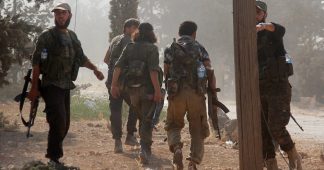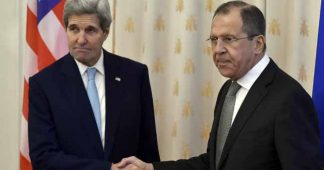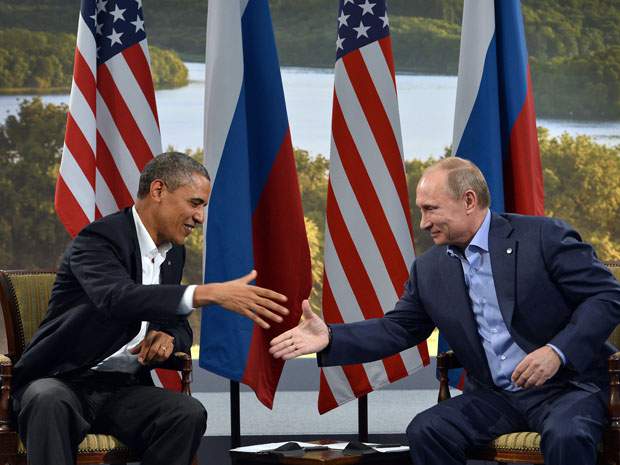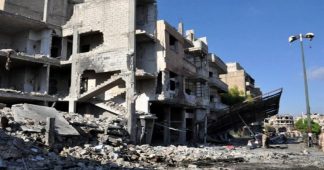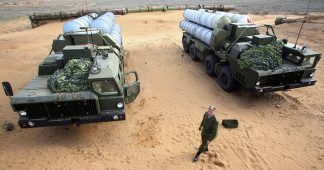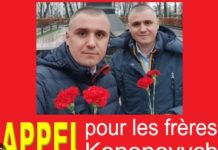Russian President Vladimir Putin has confirmed agreement has been reached on a ceasefire in Syria and the start of peace talks.
“This agreement we’ve reached is very fragile, as we all understand. They require special attention and patience, professional attitude, and constant contact with our partners,” Putin said at a meeting with Russian foreign and defense ministers.
Russian President Vladimir Putin has confirmed agreement has been reached on ceasefire in SyriaDETAILS: https://on.rt.com/7z59
Geplaatst door RT Play op donderdag 29 december 2016
The agreement, which was previously announced by Turkey, is detailed in three documents, Putin said.
“The first was signed by the Syrian government and the Syrian opposition to stop hostilities in the territory of the Syrian Arab Republic. The second one is a set of measures to control the ceasefire. The third document is a declaration of intention for Syrian settlement,” the Russian president said.
The agreement is the result of joint efforts by Russia, Turkey, and Iran, the president said.
“Great work has been done in cooperation with our partners from Turkey. We know that only recently there was a trilateral meeting in Moscow of the foreign ministers of Russia, Turkey, and Iran, where all of the nations made obligations not only to control, but also to act as guarantors of the peace process in Syria.”
The truce is supported by seven major armed opposition groups that have over 60,000 fighters in their ranks, Russian Defense Minister Sergey Shoigu said.
The Russian Defense Ministry has released a list of the groups that have pledged to stop fighting, which includes Faylaq Al-Sham, Ahrar al-Sham, Jaysh al-Islam, Thuwar al-Sham, Jaysh al-Muwahhideen, Jaysh Idlib and Jabhat al-Shamiyah.
The minister said under the deal any armed group that refuses to cease hostilities would be considered a legitimate target for the use of force, as is the case with terrorist groups Islamic State (IS, formerly ISIS/ISIL) and Al-Nusra Front, which are not included in the truce.
Shoigu added that if the agreement holds, it would allow Russia to scale down its military presence in Syria.
Putin said that such a pull-out would not mean a stop to Russia’s international anti-terrorist effort.
He added that he will contact his Iranian and Turkish counterparts to discuss further steps in the Syrian peace process.
Russian Foreign Minister Sergey Lavrov said the three nations are preparing a meeting in Astana, Kazakhstan, to pave the way for peace talks on Syria.
Lavrov said that the ceasefire agreement would be submitted to the UN Security Council later on Thursday for potential endorsement.
“We will inform UNSC members of the work we have done and answer their questions,” the Russian foreign minister said.
Meanwhile, the Turkish Foreign Ministry said that Turkey and Russia will act as guarantors of the truce, which does not include groups designated as terrorists by the United Nations.
Ankara has called on all parties that can exert influence on armed groups to support the ceasefire deal.
Damascus has confirmed that it will observe the truce starting at midnight local time on December 30 (22:00 GMT December 29).
Syrian Foreign Minister Walid al-Muallem said the truce gave a “real chance” to reach a political settlement to the Syrian conflict.
The rebel National Coalition announced its support for the ceasefire deal, AFP reported. Zakaria Malahifji, who represents the Free Syrian Army-affiliated rebel group Fastaqim, has confirmed supporting the truce to Reuters.
Osama Abu Zaid, spokesman for the Free Syrian Army rebel alliance, said at a news conference in Turkey that his group will also abide by the terms.
Commenting on the development, the US State Department described it as a “positive development” and expressed hopes that the truce would hold.
“Any effort that stops the violence, saves lives, and creates the conditions for renewed and productive political negotiations would be welcome,” spokesman Mark Toner said, as cited by Reuters. “We hope it will be implemented fully and respected by all parties.”
The US was not part of the trilateral talks between Russia, Turkey and Iran that resulted in the peace deal. Toner was previously grilled by journalists, who asked him whether the US’s absence signified dwindling influence of Washington over the situation in the Middle East.
